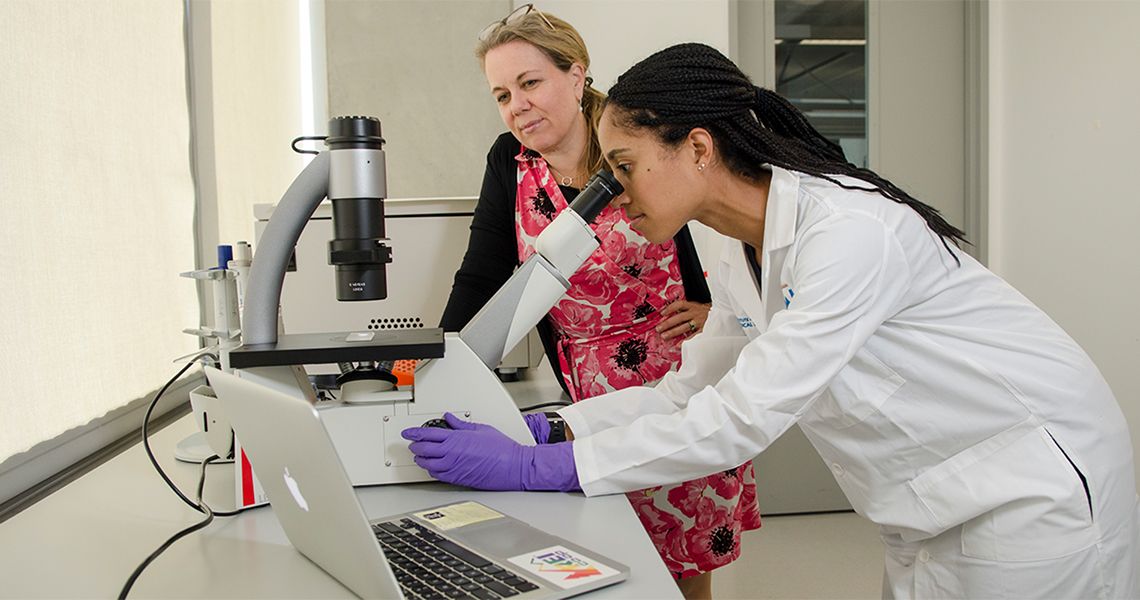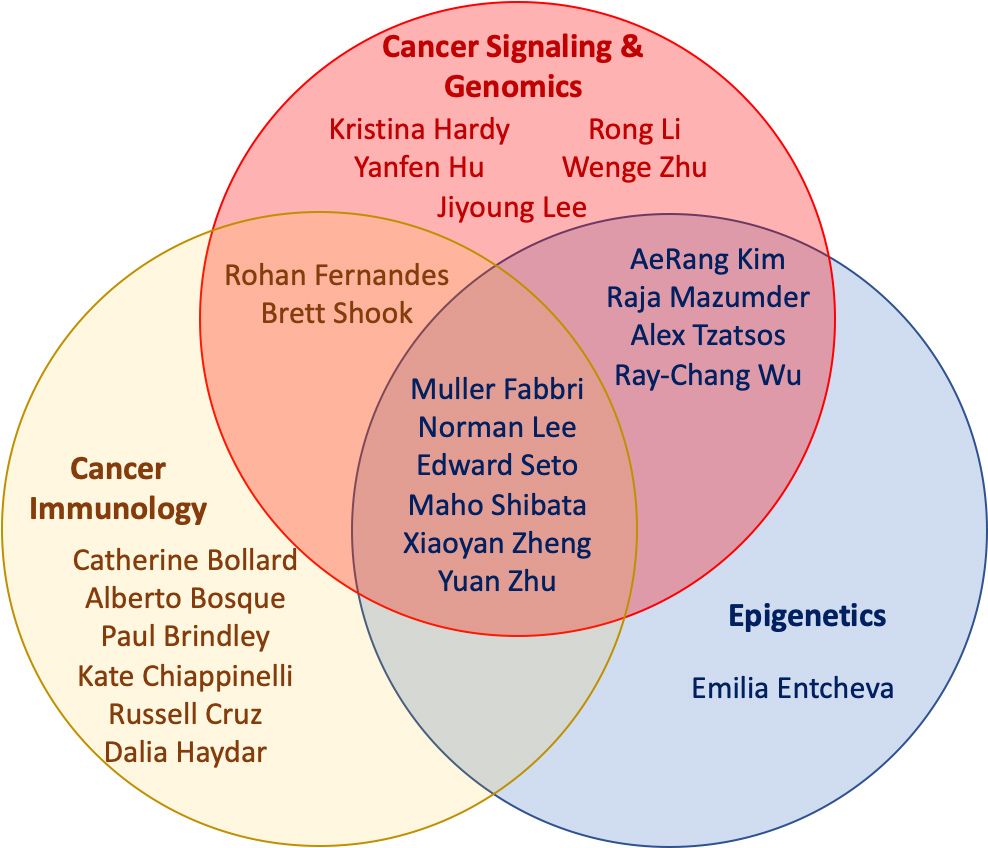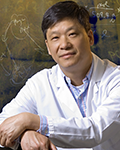
Updated 1/16/25
About the Cancer Biology Program
The George Washington University (GW) Cancer Biology Training Program (CBTP) offers mentored research training opportunities in the GW Cancer Center. The CBTP is designed to equip the next generation of cancer biologists and clinician scientists with the knowledge, analytical tools, and critical thinking skills to integrate multiple fields of biology in pursuit of cancer research discoveries.
Research strengths include Cancer Immunology and Immunotherapy, Cancer Signaling and Genomics, and Cancer Epigenetics and Technology. These strengths are also reflected in the Cancer Biology PhD program.
Each CBTP trainee will have a balance of three elements: Mentored research project directed by a faculty research mentor and an advisory committee of experienced faculty; an individualized cancer biology curriculum including an exposure to health disparities in cancer; and career and professional development, including experience in grant writing and presentations.
The CBTP offers support to individuals working with these T32 mentors:

Program Leadership

Norman Lee, PhD, a professor of pharmacology/physiology, co-leads the T-32 Cancer Biology Training Program at the GW Cancer Center. Dr. Lee also serves as the director of the Cancer Biology PhD Program, a member of the Katzen Cancer Research Center Board of Directors, and editor of Scientific Reports. |

Edward Seto, PhD, associate center director for basic sciences at the GW Cancer Center, King Fahd professor of cancer biology, and professor of biochemistry and molecular medicine at SMHS, co-leads the T-32 Cancer Biology Training Program at the GW Cancer Center. |
Program Application
T32 Cancer Biology applications are not being accepted at this time.
Applications are submitted via REDCap and should include:
- Specific Aims (1 page)
- Statement of Research (developed in collaboration with the T32 mentor) (2 pages)
- Applicant Career Goals and Research Training Plan (1 page)
- NIH Biosketch (max 5 pages)
- Unofficial Transcript
- Recommendation from proposed T32 research mentor
- Two letters of reference (not including proposed T32 research mentor)
Trainees must meet the following eligibility requirements:
- U.S. citizen or permanent resident by date of award
- Predoctoral trainees must be graduate student with a focus on cancer research
- Postdoctoral trainees must have an advanced degree completed by start date (PhD, MD, or equivalent)
- Commitment to a research career in cancer biology
Please direct information requests and all application materials to pesha [dot] rubinstein [at] gwu [dot] edu (pesha[dot]rubinstein[at]gwu[dot]edu).
T32 Seminars
- Dr. Sherrie Wallington
- Dr. Richard Lush
